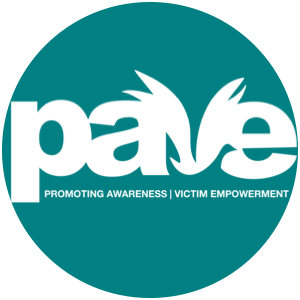How Quarantine is Affecting Survivors of Sexual Violence and Domestic Abuse
As both Sexual Assault Awareness Month and Child Abuse Prevention Month have come to a close and stay-at-home orders continue, it’s increasingly important to support survivors during quarantine. As a result of the global coronavirus pandemic, millions of people around the world have been ordered to stop going to work, stop going to school, and to quarantine inside their homes until the pandemic is under control. In the US, there were immediate concerns that the stay-at-home orders would have a significant negative impact on the economy and jeopardize people’s incomes. Though those concerns are valid, domestic violence and child abuse advocates were immediately concerned for the safety of people trapped in unsafe homes with an abuser. These concerns are valid, as we have already seen a large-scale increase of child abuse, domestic and sexual violence. Already-strained survivor support services faced a surge of domestic violence and child abuse calls.
Situations where families are in close quarters for longer periods of time, such as holidays and summer breaks, often coincide with more domestic abuse calls. That tendency has been seen tenfold as people are now forced to stay inside with their abusers to avoid the dangers of the pandemic. In addition to increased stressors to relationships, including financial difficulties and general anxieties and fears about the future, common abuse tactics have become easier for abusers to inflict and enforce on their victims. For example, abusive behavior often includes isolating the victim from their social circles, monitoring their victims’ whereabouts and movements, creating and enforcing strict rules of behavior, and controlling a victim’s access to food, clothing, and proper personal hygiene. All of these tactics of abuse become more accessible to an abuser when the victim is forced to stay at home. Government inaction regarding this surge of domestic abuse incidents has resulted in confusion and chaos for advocacy groups who support survivors. Across the country, domestic violence shelters and survivor support organizations have had to work remotely, cancel awareness events, and change the way they rescue victims from abusive situations.
Instances of child abuse have also increased following the quarantine orders as children are pulled from schools and left at home with their abusers. The Rape, Abuse, and Incest National Network (RAINN) reported a 22% increase in abuse calls from people under 18 and reported that half of all the calls the network received were from minors. The increased duration and severity of the abuse resulting from stay-at-home orders are likely to have prompted the majority of the calls. Additionally, as school and afterschool programs are canceled, students are losing access to teachers, coaches, and nurses who are required to report suspected child abuse. The crisis has prompted organizations and nonprofits to advocate on behalf of children reporting abuse themselves as the quarantine orders continue into summer.
Other avenues of escape from domestic abuse and child abuse situations are also closed to survivors because of the pandemic. Civil courts in charge of handling divorces and other legal matters have been deemed non-essential in states with severe outbreaks like New York. These judicial shutdowns are impacting survivors of abuse who are pursuing civil cases. Such as survivors of Catholic Church officials who used their role as clergy to sexually abuse children for decades. Survivors, allies, and advocates have called for courts to reopen or for legislatures to extend the legal look-back windows that allow survivors to seek justice regardless of the statute of limitations.
Those most vulnerable to violence in their homes are struggling and the organizations that work tirelessly to support them are struggling too. Many advocacy groups, like PAVE, have been forced to postpone and cancel fundraisers and awareness events to support Sexual Assault Awareness Month and Child Abuse Prevention Month.
As we continue to quarantine, know that PAVE continues to support survivors year-round. If you or someone you know is in need of help or resources, please do not hesitate to reach out. We are here for you!
To make a difference and support survivors, consider joining our Support Survivors 5k & Concert on June 20. To get involved to make a difference, email Rachel at ShatteringTheSilence.org.
For additional resources and information about PAVE, please visit: ShatteringTheSilence.org.
Written By: Emma Bailey & Rachel Mackinnon
